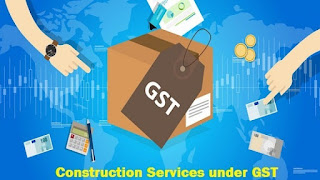Service Tax in Case of Contract
The Touchstone Infrastructure & Solutions Private Ltd. Vs. Commissioner of Central Levies and Central Excise (CESTAT Chennai), it was instructed that if VAT was formerly paid on the goods element of the compound workshop contract, also no service duty may be charged on that element again under Rule 2A (ii) of the Service Tax ( Determination of Value) Rules, 2006.
Data of the case
On a workshop contract basis, the assessee’s company proposed to finalise services to multitudinous parties. This task included organising an artificial ceiling, flooring, glazing, repairing partitions, and doing electrical work, among other effects.
It indicated a single figure for the whole agreement instead of billing collectively for the products and services part. It was needed to pay service duty on all these services under the title of workshop contract service, as well as to pay VAT on the goods element of these contracts.
According to the conditions of the Tamil Nadu Value Added Tax Act and Rules, the assessee paid VAT on the goods element equal to 70% of the total contract value of the goods and also paid service duty equal to 30% of the whole contract value.
The complainant paid VAT in agreement with Section 5 of the Tamil Nadu VAT Act, as well as Rule 8 (5) (d) of the Tamil Nadu VAT Rules, which state that in the event of a compound workshop contract, 30 of the total quantum charged is considered the service element, and VAT is outstanding on the remaining 70. The complainant discharged VAT in agreement with the law and paid service duty on 30% of the entire sum, which was reckoned for as the service element.
The Profit’s station was that service duty on a workshop agreement is leviable on the consideration entered for the service element of the workshop contract if any similar consideration is viewable in the contract/ tab independently; or differently, service duty must be paid under the “ Works Contract (Composition Scheme for Payment of Service Tax) Rules of 2007” until 30.06.2012. Hence, the Profit claimed that because the assessee didn't independently tab for the service and goods rudiments of the workshop contract, it was needed to borrow the composition scheme and pay service duty consequently for the period up to 30.06.2012.
After the date of 01.07.2012, the value of the service component of a compound workshop contract must be determined in agreement with Rule 2A (ii) of the Service Tax ( Determination of Value) Rules, 2006, as modified. As a result, there are two-time ages in question up to and after June 30, 2012.
Profit contended that because the assessee couldn't determine the true worth of the goods supplied, it should have paid service duty under the composition system. After asking for details from the assessee and reviewing the records, a show-cause notice dated 21.12.2016 was given to the assessee, demanding rupees in discriminational service duty. In the said show-cause notice, it was also recommended to charge interest under Section 75 and put the penalties under Sections 76, 77, and 78 of the Finance Act of 1994.
On the wise side, the complainant contends that the composition scheme was handed to the complainant as a choice and can not be forced upon it. In the event of workshop contracts, Profit can not pick any option for the complainant, who's free to pay either according to the Composition Scheme or else. It has given service duty on the service element of the workshop contract as well as VAT on the goods element of the contract. To divide the quantum charge for a compound workshop contract into products and services, it must adhere to the rule outlined in the Tamil Nadu VAT Act (1), which states that 30% of the value can only be collected as a service element. Once the remaining 70% of the VAT has been paid, service duty can not be levied on that quantum for the same quantum of time.
Conclusions
It was assumed that because VAT had been paid on the goods element of the compound workshop contract, hence, no service duty may be charged on that element again under Rule 2A (ii) of the Service Tax ( Determination of Value) Rules, 2006.
The market for the period after July 1, 2012, had to be set aside by Profit as well. Because the demand for service duty didn't survive, neither did the demand for interest under Section 75 nor the enforcement of penalties under Sections 76, 77, and 78.
Read More :



Comments
Post a Comment